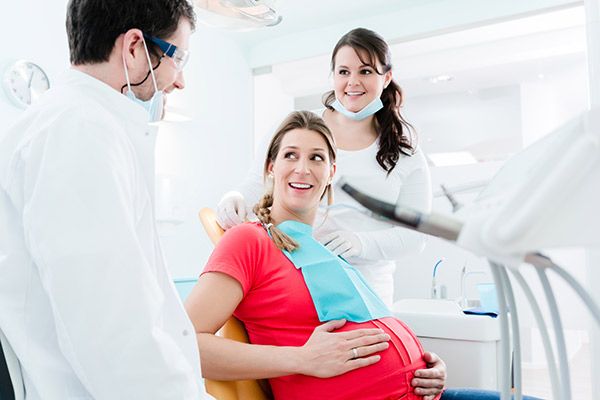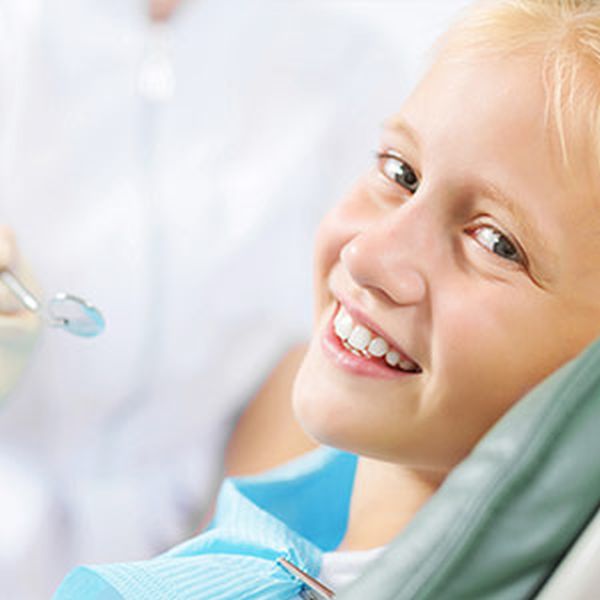Is dental treatment safe during pregnancy?

If you are pregnant, it is important that you visit your dentist to ensure your teeth are in good condition. You may have heard the old wives’ tale that a woman loses a tooth for every baby she has. In reality, it’s not pregnancy itself but rather the hormonal changes that occur during pregnancy that affect teeth.
Hormonal changes during pregnancy may contribute to bleeding, swollen or infected gums, which can damage your teeth. Moreover, pregnant women may also be more susceptible to bacterial plaque (the layer of germs that form on your teeth).
As a result, it is important that pregnant women brush their teeth well and floss after every meal. At the Casanova 25 dental clinic we’ll show you the best way to brush as well as the brushes and toothpastes that are ideal to use during this time.
These are the most common oral health problems in pregnant women:
- Changes in the saliva of pregnant women, coupled with frequent nausea and/or vomiting during the first trimester of pregnancy, can erode tooth enamel and cause tooth sensitivity. Rinsing with water is recommended and your dentist will recommend using a mouthwash and toothpaste with fluoride to prevent tooth decay.
- Together with changes in saliva, changes in diet can result in cavities during pregnancy. We recommend following the tips your dentist will give you: brush after each meal, rinse with a fluoride mouthwash and use dental floss daily. Use a small, soft brush if nausea occurs during brushing.
- Changes in gums and loose teeth. Gums may become red, swollen and bleed during pregnancy as a result of hormonal and vascular changes and the accumulation of plaque. This is known as pregnancy gingivitis and usually disappears after delivery. To prevent pregnancy gingivitis it is important to practice good oral hygiene habits, which include brushing after meals, flossing once a day, and keeping up with regular cleanings.
- A ‘pregnancy tumour’ is also relatively common. This is a large lump that forms on gum tissue and bleeds easily. It is often associated with poor oral hygiene and usually appears during the second trimester, disappearing on its own gradually during pregnancy or after delivery.
- Pregnant women may sometimes experience dental pain, infection or emergency that requires treatment; in these cases the benefit is greater than the minimum risks. If it is possible to choose, it is better to schedule these treatments for the second trimester of pregnancy.
When is it safe for a pregnant woman to be treated by a dentist?
Pregnant women can receive dental treatment at any stage of pregnancy. However, the second trimester (between the fourth and sixth month of pregnancy) is the best time, as fewer risks exist for both mother and baby.
Woman should not take medication nor get x-rays during the first trimester of pregnancy, as these could affect the baby’s normal development. Only emergency treatment that cannot be postponed should be performed during this period.
It is safe for women to have dental treatments as well as x-rays with the proper protection (lead-lined apron with thyroid collar) during the second trimester of pregnancy.
Only emergency treatments are recommended in the third trimester. Dental visits should be short, and x-rays must always be performed with proper protection. A professional will choose the most appropriate option should a local anaesthetic be required.
It is extremely important that pregnant women increase their oral hygiene at all stages of pregnancy: women should brush and floss daily as well as use an interdental brush. Many women focus all their attention on the baby during pregnancy to the detriment of their own oral hygiene. At our Barcelona dental clinic we keep all these issues in mind when serving our pregnant patients. We look forward to seeing you!


